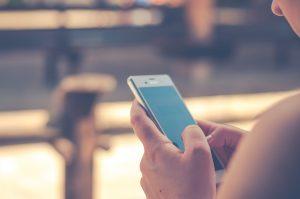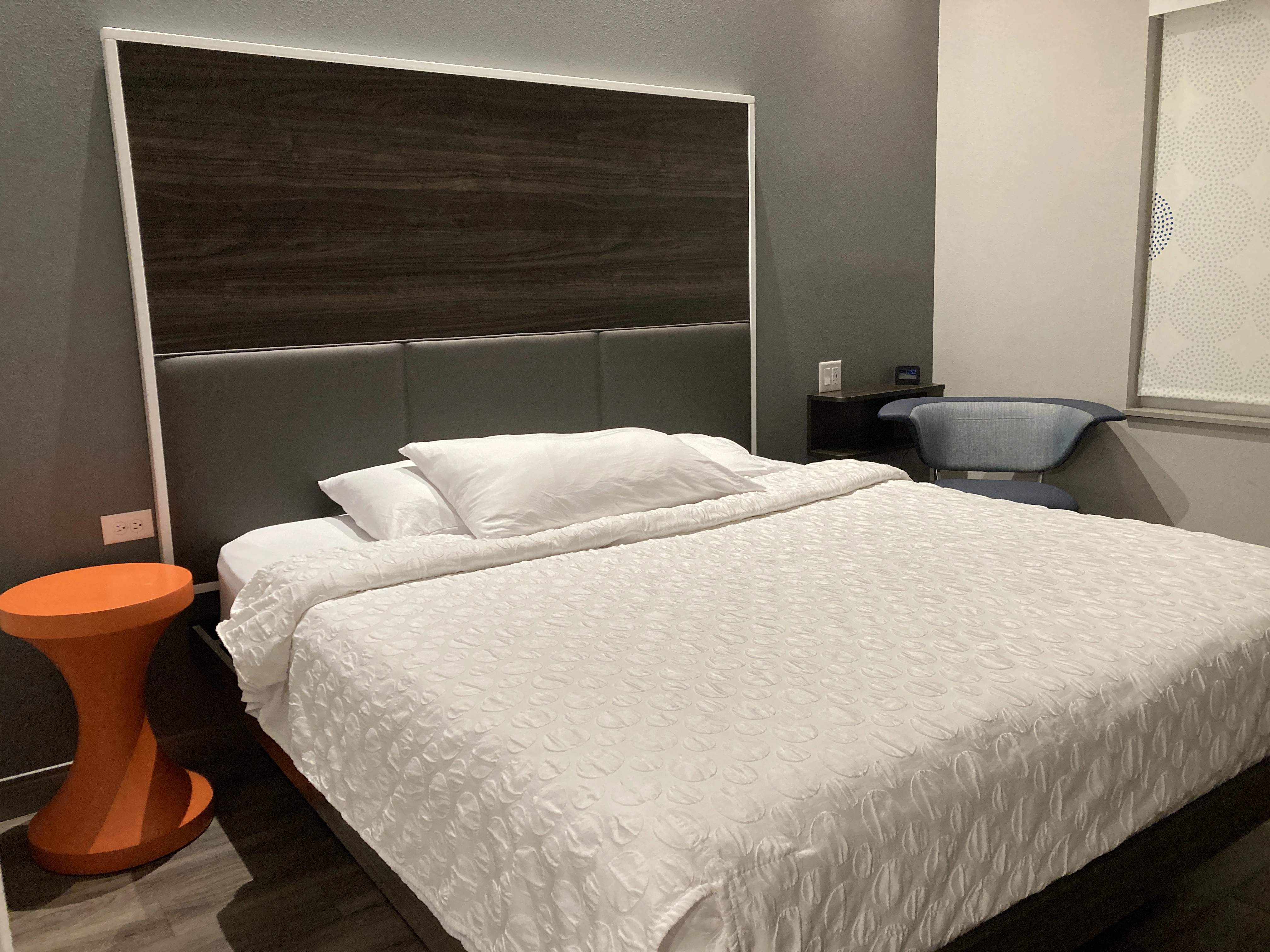
Saving Money
Should You Buy, Lease, or Finance Your Next Smartphone?
Remember a few years ago when you thought that friend of yours who always had the latest model iPhone was crazy for spending that much? That’s changed in recent years as carriers and others now allow you to essentially lease your device. Taking a page from the auto industry, you have the option to make payments on a phone and simply trade it in for a new one when the time comes. But is this really a good deal?
The answer to that question is actually pretty complicated. With that in mind, let’s first take a look at the background of the whole subject and then dive into the arguments for financing, paying in full, and for leasing.
What You Need to Know About Buying or Leasing a Smartphone

What’s Changed in the Cell Phone Market (A Rant)
The first phone that I ever purchased on my own was a Sidekick II — yes, I’m old. In order to get this (then) mind-blowing device, I had to sign a two-year contract with T-Mobile and pay $200 upfront. This process was more or less repeated as I eventually went to Sprint to get a Palm Treo under similar terms and then to AT&T for an iPhone 3G and later a 4S.
I believe it was when I went to buy my iPhone 5S that I learned that the subsidized phone contract deal was a thing of the past. Instead, you could now either pay the full price upfront or finance it and have it added to your monthly bill. While I was annoyed that I could no longer get my new phone for $200 (although it’s arguable if that was ever even a good deal), I ponied up the $550 for my phone and went on my merry way.
Of course, that’s not the only thing that’s changed in recent years. While Apple’s cycle of a new “numbered” phone followed by an “S” may have been informed by the old two-year contract gag, the company abandoned that pattern by releasing the iPhone 8 a year after the 7. After skipping over 9 to get to 10 (or “X”) and then 11, we’ve now reached the iPhone 15s — including one that starts at a whopping $1,199. Meanwhile, newer technologies such as folding glass have led to phones costing as much as $2,000 or more!
Although the recent onslaught of “iPhone on Us” offers may seem like a return to the subsidized days, as we’ll discuss, these are rarely what they seem. All this is to say, between the option of nabbing a so-called subsidized phone having gone away, more phones hitting the market, and prices on said phones rising, it’s no wonder that some consumers might be weighing their financing options.
Financing a Phone vs. Leasing a Phone
How Does Phone Financing Work?
When you finance a phone, you’ll be making monthly payments that will eventually add up to the phone’s total cost. At that point, you’ll own it free and clear. More often than not, these payments will be spread over one to two years. For example, if a phone costs a total of $1,000, you might be able to finance it, paying around $41.66 a month for 24 months. However, a down payment may also be required.
Depending on the terms of your financing agreement, you may end up paying 0% interest on these purchases as long as you make on-time payments and pay off your phone in the time allotted. This is often the case when financing phones through a major carrier as they want to incentivize you to upgrade.
Similarly, Apple now allows Apple Card customers to finance select devices including iPhones, while paying 0% interest (note that other non-qualifying device Apple Card purchases will accrue interest if the balance is carried over). Nevertheless, you’ll always want to be sure to carefully review the terms of your financing agreement and know what interest rate may apply. Additionally, watch out for what’s known as “deferred interest” where you may be responsible for paying interest on the purchase after the fact if you fail to pay it off on time.
How Does Leasing a Phone Work?
Similar to financing a phone, leasing a device will likely find you making monthly payments that correspond to the total cost of the phone. However, a key difference is that you won’t be able to keep the device. Instead, like with leased vehicles, leasing a phone will require you to turn in your device once the contract terms end.
To be sure, there is a difference between simply financing a new phone and leasing one, even if some of the programs that various carriers offer are blurring the lines between these two concepts. For example, AT&T Next allows customers to purchase phones, make monthly payments based on the option they choose, and trade it in for an upgrade after a certain length of time. Alternatively, you could forgo your “early upgrade,” continue making your regular payments (or pay it off early) and keep the device.
Elsewhere, many of the major mobile network carriers now offer their own leasing programs. Additionally, Apple has its own iPhone Upgrade program. Notably, the Apple program includes Apple Care whereas the carrier options don’t. Additionally, according to Apple’s site, you can even switch carriers after activating. The moral of the story is that, if you are considering leasing, you should look into what options you have and do some comparison shopping. Also, it never hurts to ask questions before buying as these plans sometimes can be pretty confusing.
Other Considerations When Leasing or Financing
What are Unlocked Phones?
One big difference between financing your phone and buying it outright is that, unless you pay in full upfront, your phone will likely be locked. This just means that the device can only be used on a certain network, thus preventing you from taking a phone you still owe money on to another carrier. However, once your device is fully paid for, you can request to have it unlocked.
For most people, having an unlocked phone isn’t exactly a necessity. On the other hand, if you don’t want to be tied to a certain carrier, you might consider paying in full. Another important note is that, as I’ve mentioned in some of my travel posts, you can sometimes save some money on cell phone service by buying international SIM cards. Unfortunately, this plan will only work if your phone is unlocked.
How Do Trade-Ins Work?
Another trend that’s emerged with wireless plans as of late is the trade-in offer. In the past, you’ve probably seen commercials advertising the latest iPhone for a lower price (or even free) with an eligible trade-in. Such promotions might make the price tag a bit easier to swallow, but it’s worth taking a closer look at what’s required.
In some cases, the advertised discount may only apply for those trading in phone models that are only a year or two old whereas those with older devices may see severely diminished or non-existent discounts. Also, the savings may be doled out in the form of monthly credits. And while some wireless networks have been emphasizing that their latest rounds of deals apply to both new and existing customers, this still might not be true of all deals you may encounter.
With that in mind, if you are thinking about trading in your phone, you’ll definitely want to read the fine print before you get your heart set on a new device. Additionally, it may be a good idea to see what your phone might fetch on Gazelle.com or similar sites to determine if that might be better than turning your phone over to your wireless provider.
Finally, it’s important to point out that these “deals” are simply encouraging you to shorten your upgrade turnaround time and essentially pay a few hundred dollars to use a phone for only a year. Thus, while you might technically be buying the phones, you’ll essentially be leasing them — so at least be aware of that and ensure that such an arrangement makes sense for you.
What is the Best Way to Purchase a New Smartphone?

What Are the Benefits of Financing a Phone?
Phone financing is popular for a number of reasons. Chief among them is that in many cases this financing comes with 0% interest, meaning that you’re spending the same amount whether you pay upfront or have monthly installments. Because of this arrangement, many (but not all) would argue there’s no reason not to finance your phone under these terms if you wanted to buy instead of lease.
What Are the Advantages of Paying in Full for a Device?
Like I said, not everyone is on board with the idea that 0% financing is the same as paying in full. In fact, in this article from financial blogger Holly Johnson, she argued that such arrangements actually trick many consumers into spending more than they can really afford. This is to say that, by paying the full price upfront, you’ll truly understand the cost of your decision.
Whether or not you side with Holly on this point, another reason you might want to buy your new phone outright is so that you can enjoy the freedom that comes with having an unlocked phone. What’s ironic is that many cell phone shoppers used to balk at the idea of signing a two-year contract to get a new phone, yet so many are still locked into telecom agreements because they’re financing or leasing their device. If you truly want to be untethered from a network and don’t want to have to worry about making monthly device payments, it may make sense to just pay in cash (not literal cash as you’ll want those credit card rewards) upfront.
What Are the Benefits of Leasing a Phone?
On the surface, it may seem that the reason people would prefer to lease their phones instead of buying them is simply because they always want to have the shiniest new toys. That may be the main factor, but it’s also about how you use your phone and will continue to use your phone in the coming years. To some, there’s just little or no value to a phone after a few years, so trading it in actually makes more financial sense.
There’s also something to be said for having the latest model cell phone beyond the bragging rights and tech envy. As smartphones become the primary device for many of us, hackers are constantly discovering new ways to break into them. Thankfully, companies like Google and Apple are pretty quick to patch these problems with software updates but, if your phone is too old, you may no longer receive such updates, potentially leaving you vulnerable. That may be a stretch to some, but it is a considerable concern for others.
Should I Buy, Lease, or Finance My Phone?
Well — it depends. For those who need a new phone and may not have the $700+ dollars on hand to buy one, monthly payments may make sense. Meanwhile, international travelers or those who don’t want to be tied to any network may opt to pay in full. Finally, if you don’t plan on using your phone for long and want the ability to upgrade to the latest model as soon as it hits the market, leasing might be worth the price.
Personally, as someone who tends to use a phone for two to three years before upgrading, I prefer to either pay in full or finance — and I have done both. A few years ago, we purchased my iPhone SE with the AT&T Next plan and gave my then still-functional 5S to my wife. Had I leased my 5S, that wouldn’t have been an option and we’d have been paying for two phones instead of one (by the way, when we did pay off my SE, she got an iPhone 8 that we paid in full in order to move to T-Mobile).
More recently (but still a few years ago at this point), when the 2nd Generation iPhone SE was released, I financed it on my Apple Card just to try that feature out and then paid off the balance a couple of months later.
Incidentally, I’ve also seen a downside to financing as well. On a solo trip to Hong Kong, I had to swap phones with my wife for the week since I wanted to use a prepaid SIM and my phone was still locked. Because of this, I’ll likely just pay upfront in the future (or continue to finance via Apple Card).
Over the past several years, the way many Americans pay for their cell phones has changed drastically. While a $200 smartphone with a two-year contract may no longer be an option, you now have the choice to finance your phone, lease one, simply pay for it in full, or attempt to claim one of the “on us” offers. No matter what you choose, just be sure that your plan is one that you can honestly afford and that makes financial sense for your situation.
Leave a Reply
You must be logged in to post a comment.





Are leased phones are also locked same with financed phones?
If you’re someone who always opt for the latest version of phones, leasing woud be a goodoption for you.
Deciding on how to buy your phone really depends on your needs but its great that there are good options to choose from.
Leasing a phone is actually an eco-friendly way to have the latest phones in the market, you can save at the same time not making your old phone useless.